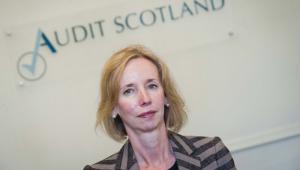The PAC assessed the progress of a government scheme to cut costs through sharing departmental back office functions that has been running for four years, publishing its findings in a report out today.
It found the two schemes evaluated have delivered savings of £90m but at cost of £94m, incurring a net cost to the taxpayer of £4m.
Moreover, the committee concluded that government was “failing for much the same reasons” as identified by a 2012 PAC probe, principally weak governance and leadership, and poor departmental collaboration.
Today’s report found that, at the outset, the Cabinet Office did not have leaders in place with appropriate shared services experience. Also, while the Cabinet Office managed the framework agreements between government and suppliers, departments had individual contracts with suppliers. Consequently, when problems arose the Cabinet Office did not always have a clear mandate to intervene. This exacerbated the issue of departments acting independently rather than collaboratively.
Critically, the committee found there was no overall business case for the two shared service centres. While business cases were prepared, these were found to be partial, incomplete and out of date.
It was also too easy for departments to pull out of the programme, which some have done to “protect their own interests.”
The Cabinet Office now estimates that the centres will deliver savings of around £484m in total by 2023-24, which is far less than the anticipated £300-400m annual savings set out in the Next Generation Shared Services Strategy launched in 2012.
The committee is calling on the Cabinet Office to agree by March next year a set of standardised processes for the government. Meanwhile before the end of this year, government should also produce a “realistic and complete business case” for the centres and set out clear governance procedures.
Meanwhile, it urged the Cabinet Office to set out what steps it will take to, put effective leadership and sufficient expertise in place.
The PAC noted recent positive developments, such as the appointment of senior individuals from the finance and HR professions. Overall, however, it concluded that for this project and others like it to succeed, the Cabinet Office must demonstrate effective leadership to ensure departmental buy-in and collaborative action.
Meg Hillier, chair of the PAC, said: “The government set out to save money with this programme but it launched with critical flaws Whitehall then failed to address.
“Each department was able to request multiple changes which led to big cost increases.”
She said the result has been a net cost to taxpayers and a significant scaling back of ambition for the savings likely to be achieved in the years ahead.
“If the government is serious about making a success of shared services, and indeed future projects running across departments, it must act on the serious concerns set out in our report before any more public money is wasted,” she added.




















